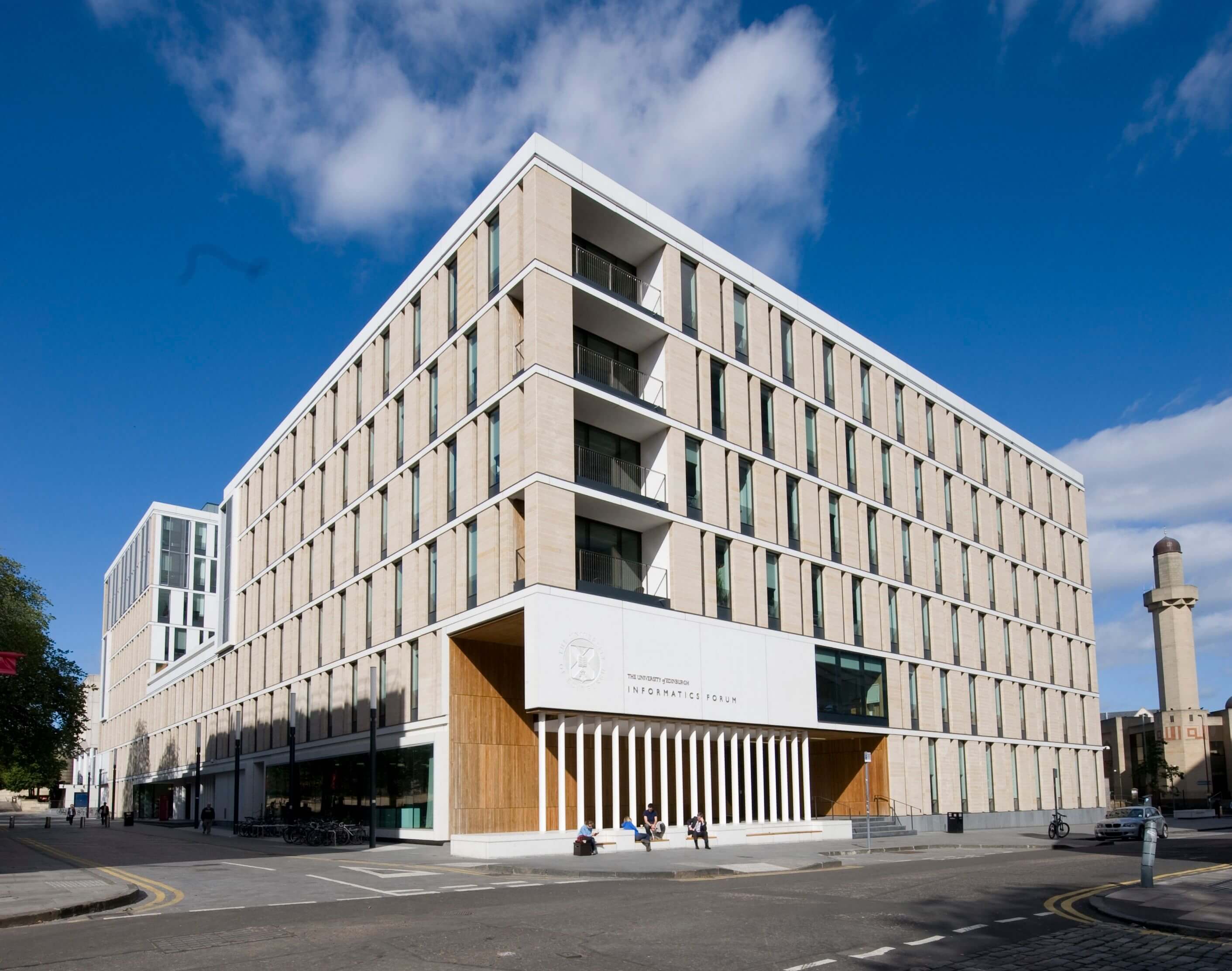The University of Edinburgh has a long history of international leadership in computer science (CS) and artificial intelligence (AI). They founded the first AI lab in Europe in 1963 and have been developing groundbreaking research in the area ever since. Their AI and CS degrees were established in the 1970s and continue to this day in the School of Informatics.
This School is world-leading in its research and regularly ranked in the top 25 departments internationally in university rankings. Further attesting to its prowess in CS are its rankings. The University of Edinburgh were ranked 22nd and 26th respectively by both the Times Higher Education World University Rankings 2021 by subject and the QS World University Rankings by Subject 2021. They were also ranked 16th in the QS World University Rankings 2022 and 30th in the Times Higher Education University Rankings 2021.
Being at the forefront of research means that both undergraduate and postgraduate students get the opportunity to learn cutting edge science and technology from experts in the field, through a curriculum that is regularly revised to reflect the state of the art and the interests of employers.

The School of Informatics offers undergraduate and postgraduate courses and degrees in Informatics, AI, Cognitive Science, Computer Science and Software Engineering. Source: The University of Edinburgh
The curriculum includes courses as diverse as computational cognitive neuroscience and quantum security, machine learning and natural language processing. This allows each student a wide choice of courses and the opportunity to craft their degree to reflect their interests and career aspirations. The School is home to a vibrant community of staff and students who are drawn from all corners of the globe — there are currently more than 100 nationalities represented amongst them. Thus, the School brings together the brightest and best from around the world and creates wide-ranging opportunities for everyone to fulfil their potential.
As a School of Informatics, rather than Computing, they encompass the study of creation, processing, storage and communication of all forms of information, both natural (e.g., DNA, neurons, etc.) and artificial (e.g., computers and communication networks).
Cutting edge research in topics such as robotics, biomedical AI, natural language computing, cyber security and quantum computing are reflected in the courses that are available for third and fourth year undergraduate and masters students, whilst first and second year undergraduates study a range of fundamental topics that support later development in a variety of directions. The School’s lecturers are also passionate about their topics, and many receive nominations in the Edinburgh University Student Association teaching awards, which students nominate.

There are currently more than 100 nationalities represented amongst the students and staff. Source: The University of Edinburgh
In addition to the taught curriculum, students have the opportunity to get involved in a wide range of student societies. The Edinburgh Hoppers, for instance, is a student-run, women and gender minorities in technology group. They organise various events such as workshops, tech talks and socials, often in collaboration with various companies.
Subject-related societies such as CompSoc — a diverse community of computer scientists, programmers and people passionate about the IT industry — are also available and are run by students of the University of Edinburgh. Student societies promote interactions with industry, including invited talks and CV clinics. The School’s team of dedicated business development executives are on hand to support and advise students interested in creating their own startup.
The School is at the centre of a rich technology ecosystem in Edinburgh, with a number of large industrial collaborators such as Amazon and IBM close by, as well as many startups and SMEs. This ecosystem provides input into the student experience in the School as well as a gateway into employment at the end of degrees.

Calton Hill in Edinburgh is famous for its collection of historic monuments. Source: The University of Edinburgh
The School and the University are situated in the centre of historic Edinburgh, the home of the Seventeenth Century Enlightenment. As the capital city of Scotland, Edinburgh combines old and new, in a stunning physical location, offering the best of all worlds. The city hosts numerous festivals each year, including the internationally renowned Edinburgh International Festival and the Edinburgh Festival Fringe.
Despite being a capital city, Edinburgh is reasonably compact and easy to get around, with much to offer in terms of culture and experience. Moreover, it is surrounded by the beautiful Scottish countryside, easily accessible by public transport.
Follow The University of Edinburgh’s School of Informatics on Facebook, Twitter and LinkedIn










